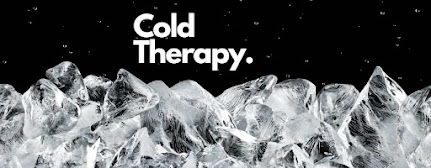Embracing the Chill: How Cold Plunges Offer Relief to Service Members and Veterans with PTSD and Mental Health Issues
Service members and veterans often carry emotional burdens from their experiences, leading to mental health challenges like PTSD, anxiety, and depression. Amidst the array of therapeutic options available, an unconventional yet promising approach has emerged - cold plunges. In this blog, we'll explore how cold plunges can provide much-needed relief and support for service members and veterans in their battle against mental health issues.
1. The Weight of War: Understanding PTSD and Mental Health Struggles Among Service Members and Veterans
The impact of serving in the military can be profound, often leading to PTSD and other mental health conditions. Witnessing traumatic events and dealing with the stress of active duty or transitioning to civilian life can take a toll on their emotional well-being.
2. The Therapeutic Potential of Cold Plunges
Cold plunges, also known as cold-water immersion therapy, involve submerging the body in cold water for short periods. Surprisingly, this simple practice offers a host of benefits for mental health:
a. Regulation of Neurotransmitters: Cold immersion triggers the release of endorphins and norepinephrine, which can alleviate stress and enhance mood.
b. Autonomic Nervous System Balance: Cold plunges may promote a healthier balance within the autonomic nervous system, resulting in reduced anxiety levels.
c. Enhanced Resilience: Confronting the challenge of cold water immersion can build resilience, empowering service members and veterans in their recovery journey.
3. Benefits of Cold Plunges for Service Members and Veterans
a. Stress Reduction: Cold plunges induce a state of relaxation, helping service members manage stress and emotional tension more effectively.
b. Mood Enhancement: The release of endorphins can lift moods, offering a natural way to combat depression and anxiety.
c. Improved Sleep: Regular cold plunges may improve sleep quality, aiding in the recovery process.
d. Emotional Release: Cold immersion can serve as a healthy outlet for emotional release, allowing service members to process challenging emotions.
4. Embracing the Ice: How to Incorporate Cold Plunges into Your Routine
a. Start Gradually: Begin with shorter cold plunges and gradually increase the duration as you become accustomed to the experience.
b. Mindfulness and Breathing: Practice deep breathing and mindfulness techniques during the plunge to enhance relaxation and focus.
c. Seek Support: Engage in cold plunges with fellow service members or veterans, fostering camaraderie and support.
5. Integrating Cold Plunges into a Holistic Mental Health Approach
While cold plunges can be beneficial, they are most effective when integrated into a comprehensive mental health strategy. Collaborate with mental health professionals to ensure cold plunges complement existing therapies and support personalized care.
6. Precautions and Considerations
Before attempting cold plunges, consider the following:
a. Medical Consultation: Consult with your healthcare provider, especially if you have any pre-existing medical conditions.
b. Safety Measures: Always have a partner present for safety and never attempt cold plunges in hazardous conditions.
For service members and veterans, the journey to recovery from PTSD and other mental health issues can be challenging. Cold plunges offer a unique and refreshing approach to complement traditional therapies. The potential benefits of stress reduction, mood enhancement, and improved sleep make cold plunges an attractive addition to a holistic mental health strategy. As with any therapy, individual needs and considerations should guide the implementation of cold plunges. Together, we can embrace the chill and support the brave men and women who have served their nations on their path to healing and well-being.

Comments
Post a Comment